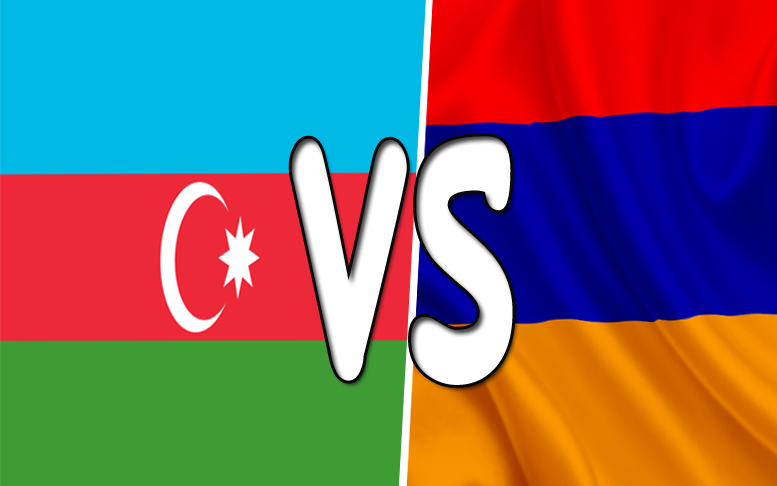Battlefield of the Caucasus, Nagorno-Karabakh region, is an enclave of 4400 sq km full of hilly and heavy-forested areas. It has been at the center of decades of armed conflict between two neighboring countries Armenia and Azerbaijan.

Nagorno means hill. Karabakh means a black garden. This is a prosperous region and Azerbaijan is a country rich in energy resources. They opened the world's first oil well south of Baku in 1848. Armenia is militarily stubborn but economically less influential than Azerbaijan. Though Nagorno-Karabakh is recognized as a part of Azerbaijan under international law, it has been occupied by Armenia for three decades. There are mainly ethnic Armenians in the majority. In the 1990s, the Armenians of Nagorno-Karabakh clashed with Azerbaijan, involving the Armenian army. At one point in the war, Armenian occupation continued after the 1994 ceasefire.

The beginning of the conflict:
Since 1918, Armenia and Azerbaijan have declared independence from the Russian Empire. In 1920 the South Caucasus (Azerbaijan) attacked the Soviet army re-imposed their rule. At that time, the Soviets annexed the Armenian Christian-dominated "Nagorno-Karabakh" to the Soviet-ruled Republic of Azerbaijan. Because Russian rule was re-established in Armenia in 1922. But when the tone of the breakup in the Soviet Union became clear, it was speculated that Nagorno-Karabakh would remain under Baku and create a long-term problem. Because the ethnic Armenians did not accept the Azerbaijani rule.

In 1978, the Nagorno-Karabakh legislature voted to join the Armenian Republic, a claim rejected by Azerbaijan and Moscow. After the collapse of the Soviet Union in 1991, Yerevan-backed Armenian separatists occupied the region and seven adjoining Azerbaijani districts. Although the area was home to a significant number of Muslim Azerbaijani minorities. At least 30,000 people died in the war, and one million were forced to flee their homes. Internationally, they agreed to a ceasefire in 1994. However, the region and some adjoining Azerbaijani territories remained under Armenian occupation.

Since then, there have been frequent reports of clashes around the Nagorno-Karabakh and Azerbaijan-Armenia borders, and repeated peace talks have stalled. The efforts of the OSCE Minsk Group, founded in 1992, have repeatedly failed. In April 2016, dozens of people on both sides were killed in the worst fighting in years in Nagorno-Karabakh. The latest clashes resulted in casualties on both sides, including civilians.
Let's see how this crisis complicates the global geopolitical equation:
These long-running tensions are of some concern to the international community. Because it is an energy-rich region. And the area serves as a road for oil and gas pipelines to the world market. Some more issues, most people in Armenia, are Orthodox Christians. To maintain its dominance in the Caucasus, Armenia has always sided with Russia on the Nagorno-Karabakh issue. Turkey has publicly declared it’s support for Azerbaijan. The United States supports Azerbaijan in the face of a historic dispute with Russia. Israel, a close ally of the United States, is a major arms supplier to the Azerbaijani army. But now that relations between Turkey and Israel have deteriorated, they are no longer helping Azerbaijan. France is a close ally of America, but France is home to an influential Armenian population. They can influence the French government. The majority of Azerbaijanis are ethnic Turks, but Shia Muslims (most people in Turkey are Sunni Muslims). However, Azerbaijani Shias are not extremists.

Although Iran is a Shia Muslim country, it has close ties with Russia. Although many ethnic Azerbaijanis live in Iran, Iran has always helped Armenia. Iran shares borders with Armenia and Azerbaijan, and Azerbaijan has a border dispute with Iran over the Champaign Sea. As a result, Iran wants to corner Azerbaijan. In the ongoing civil war in Syria, Turkey and Iran support two different opponents. As a result, Iran wants Turkey to taste defeat on the Azerbaijan front.
If the European Union pushes Turkey away on the East Mediterranean issue, Russia is always a friend to Turkey. On the other hand, Russia-Iran is an old ally, Russia-Armenia friendship and long time. On the other hand, Turkey is a NATO member!
In this context, both Azerbaijan and Armenia are on the verge of a full-scale war by imposing martial law. Now let's see where the water flows.
References:
Tas, BBC, Politico, TRT, AFP and some other news media.
[1] https://www.bbc.com/news/world-europe-54366616
[3] http://www.iranreview.org/content/Documents/Who-Is-Winning-and-Who-Is-Losing-in-Karabakh-.htm
[4] https://www.politico.eu/article/the-nagorno-karabakh-conflict-explained-armenia-azerbaijan/



